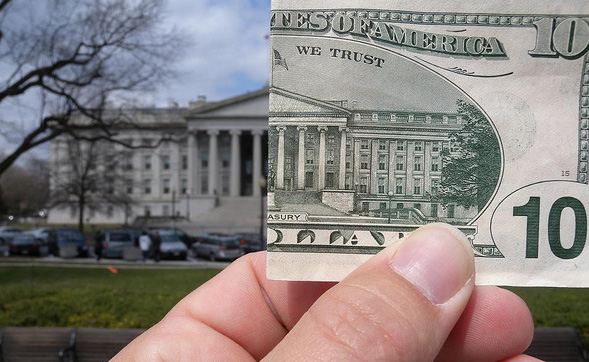Economy Watch: Markets Go Chicken Little, G-20 Doesn’t Say Much
Wall Street was in full Chicken Little mode on Thursday, and investors rushed to Treasury notes. The G-20 called for economic action, but didn't say what that action might be. And the Leading Economic Index gained 0.3 percent to 116.2.
September 23, 2011
By Dees Stribling, Contributing Editor
Wall Street was in full Chicken Little mode on Thursday, worried that the economic sky is falling. And maybe it is. No less an authority on economic conditions than the Federal Open Market Committee said in its Wednesday statement — along with something about the Twist — that there are “significant downside risks to the economic outlook,” which is Fed polite-ese for “don’t let the sky hit you on its way down.”
So investors took their money and scurried to perceived safe harbors. The yield on 10-year Treasuries sank to 1.716 percent during the day, which is its lowest level roughly since the invention of Arabic numerals. Also, investors didn’t much care for the prospects for oil, driving November crude oil contracts down 6.3 percent to $80.51, or gold either, taking the price of the metal down 3.7 percent, to about $1,741 per troy ounce.
Mostly, though, investors did not care to be in the equities markets. Stocks worldwide lost ground as the world turned on Thursday — first in Asia, then Europe, then North America. At times the Dow Jones Industrial Average was down about 500 points, but ended the day down 391.01 points, or 3.51 percent. The S&P 500 lost 3.19 percent and the Nasdaq 3.25 percent.
G-20 Speaks up Suddenly, Says Little
In the face of such panic, or near panic, or at least vast nervousness, the Group of 20 nations got their wordsmiths busy on Thursday and released a statement meant to calm things down. “We are committed to supporting growth, implementing credible fiscal consolidation plans, and ensuring strong sustainable growth,” the G-20 said in its communiqué. “This will require a collective and bold action plan with everyone doing their part.”
Actually, communiqués were flying fast and thick on Thursday, with certain member nations of the G-20 getting together to nag other members. Australia, Britain, Canada, Indonesia, Mexico and South Korea sent a letter to French President Nicolas Sarkozy to call for “decisive action to support growth, confidence and credibility.” Brazil, Russia, India, China and South Africa said in a separate statement that the developed world — the U.S. and the EU, that is — need “to adopt responsible macroeconomic and financial policies.”
The messages were devoid of specifics or plans of action, however. Facebook was more specific on Thursday about its plans for world domination (or at least, beating Google down) than the G-20 was about Euro-debt or U.S. political dysfunction or any of the other problems that vex the world.
Leading Indications Eke Out an Increase
Nearly lost in the din of the borderline panic, the Conference Board said on Thursday that its Leading Economic Index for the U.S. increased 0.3 percent in August to 116.2 (2004, which now seems so long ago, equals 100). That movement followed a 0.6 percent increase in July and a 0.3 percent increase in June.
Not that the LEI reading was particularly good news. The August increase was spurred by components measuring financial and monetary conditions, which offset weaker components measuring expectations. Generally speaking, then, corporate bottom lines are actually in fairly good shape these days, but executives are fretting about possible troubles dead ahead, as well they should.
“There is growing risk that sustained weak confidence could put downward pressure on demand and business activity, causing the economy to potentially dip into recession,” said Ken Goldstein, economist at the Conference Board, in a statement that didn’t quite share the market’s fretfulness. “While the chance of that happening remains below 50-50, the odds have certainly increased in recent months.”








You must be logged in to post a comment.